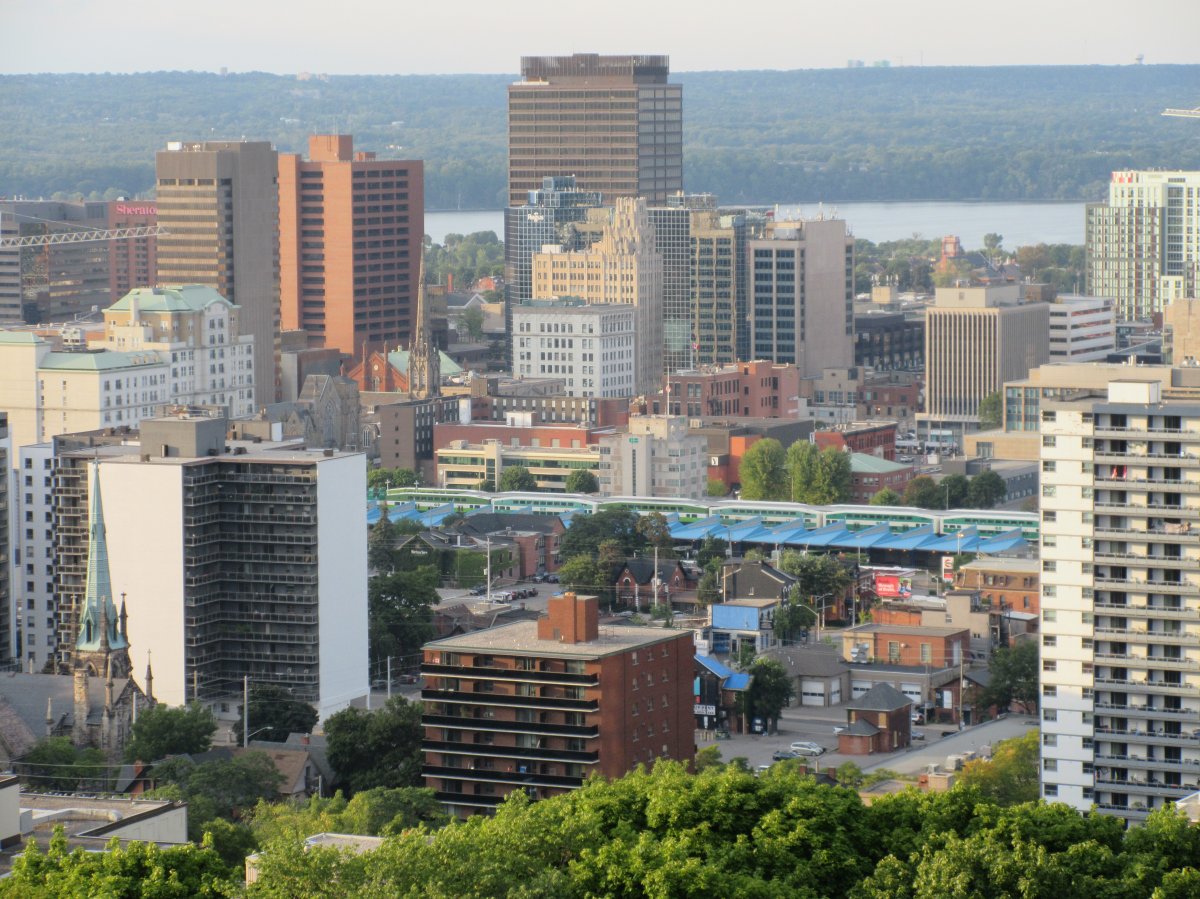A coalition of non-profits say they’re ready to jointly start building around 400 units to aid Hamilton’s supportive housing crunch but will need help from the three levels of government to do it.

The plan combines eight affordable housing projects connected with four city organizations into a portfolio that potentially could welcome residents from shelters and encampments as early as 15 months upon receiving permits.
But the director of projects and development at Indwell, a Christian affordable housing charity, says the federal programs it needs through the Canadian Mortgage and Housing Corporation (CMHC) require co-investors, including the municipality.
“It means that the city has to, one, endorse a project, and two, put something in the game,” Indwell’s Graham Cubbitt said.
“It’s typically around 10 … 20 per cent, somewhere in that range.”
Since late 2021, the number of actively homeless people in Hamilton has hovered around 1,600 with approximately 165 individuals completely unsheltered.
Last week, some 1,000 residents made clear calls for action to alleviate an encampment issue via an information session at the convention centre downtown.
Councillors have been seeking public input on solutions via recent surveys and town halls that possibly could allow sanctioned encampment zones and a revised protocol on dealing with sites not endorsed by the city.
- RCMP arrests alleged hitmen accused of killing B.C. Sikh leader
- Fall COVID-19 vaccine guidelines are out. Here’s what NACI recommends
- Some 2019 candidates ‘appeared willing’ to engage with foreign interference: Hogue inquiry
- Thousands of Canada’s rail workers have a strike mandate. What happens now?
In April, city politicians endorsed a roadmap for creating several hundred new affordable housing units annually via a series of short-term and long-term goals in collaboration with city divisions and community partners through a housing secretariat.
The goal is to build some 350 new affordable homes each year for the next decade, while repairing existing units.
In January, the city’s housing director Michelle Baird explained that an annual $4-million allocation to support local affordable-housing projects is far short of what’s actually needed.
Compounding the problem is the city producing only around 50 new affordable units per year, far below targets set in the previously approved Housing and Homelessness Action Plan to end chronic homelessness by 2025.
Councillors learned part of the problem was increasing per-unit construction costs moving from around $250,000 to $500,000, likely requiring capital build funding of $175 million yearly to meet remaining targets.
The city’s housing services division estimates close to 6,000 are seeking affordable accommodations in Hamilton, with an average wait between three to five years.
Cubbitt says the combined portfolio, which also includes the YWCA, Good Shepherd and Sacajawea Non-Profit Housing, would create 418 units in all.
He hopes to get an answer from the mayor and councillors by the summer.
After that, a key piece would securing some 25 per cent in funding from the province to unlock up to 50 per cent of money through CHMC programs.
“The city doesn’t even have to do the heavy lifting per se, but they just need to say, ‘this strategy … works for our city and we’re going to get behind it,” Cubbitt explained.







Comments